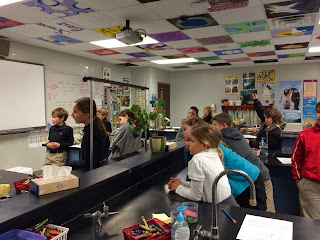













Space Exploration—Vocabulary
Study Guide
Inner Planets—the small,
solid, rocky planets between the sun and the asteroid belt
1.
Mercury—the smallest
planet, which is also closest to the sun
2. Venus—the hottest and brightest planet; a day
on this planet is longer than a year and it rotates in the opposite direction
of Earth
3.
Earth—the planet on
which we live that is perfectly designed by God for human, plant, and animal
life; it is also the only planet with liquid water
4. Mars—the “red” planet whose red color comes
from the iron in soil and rocks, like rust
Outer Planets—the large,
gaseous planets that are beyond the asteroid belt
5.
Jupiter—the largest
planet, known for its huge storm, the Great
Red Spot
6. Saturn—this ringed planet has such a low
density that it could float on water; its north pole jet stream is in the shape
of a hexagon
7.
Uranus—this greenish
planet has an extreme tilt and 11 very thin rings
8. Neptune—this cool blue planet is furthest from
the sun and is sometimes called the Ice
Giant
Dwarf Planet—an object in
space, smaller than a true planet, that orbits the sun but may not stay in its
own orbit (examples include Ceres and Pluto)
ISS—the
International Space Station (an experiment facility orbiting earth where up to
7 astronauts from various countries can safely live and conduct experiments in
space)
NASA—National
Aeronautics and Space Administration of the US (the agency of the United States
government that is responsible for the nation's civilian space program and for
flight and space research)
Astronaut—a person who
travels in space
Asteroid—a space rock
orbiting the earth, mainly found between Mars and Jupiter
Comet—a small frozen mass
of gas, dust, and ice that may have a nucleus, a coma, and a tail
Rotate—what the earth
does on its axis (approximately 24 hours)
Revolve—what the earth
does around the sun (approximately 365 days)
Seasons—each of the four
divisions of the year (spring, summer, autumn, and winter) that are marked by
weather patterns and daylight hours and that result from the earth's changing
position with regard to the sun.
Star—a ball of hot,
bright gas that produces energy by a nuclear reaction; the sun is an example
Constellation—a group of stars
within a region of the night sky that are said to look like animals or
mythological characters
Solar System—the sun and
everything that revolves around it
Galaxy—a huge system or
family of stars; our galaxy is called the Milky
Way
Astronomy—the study of
stars and planets



No comments:
Post a Comment
Note: Only a member of this blog may post a comment.